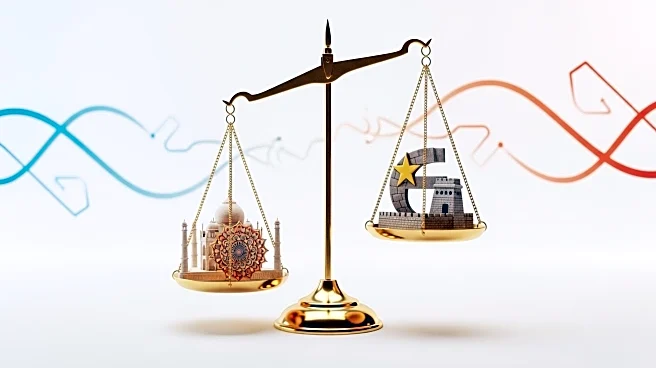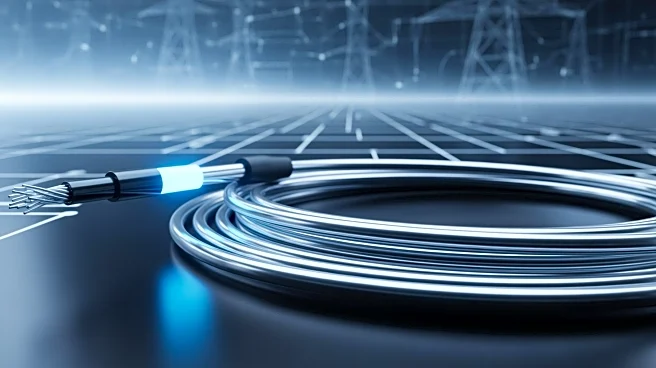What's Happening?
President Trump has imposed significant tariffs on Indian goods as a response to India's continued purchase of Russian oil. This development coincides with Indian Prime Minister Narendra Modi's visit to China for the Shanghai Cooperation Organisation (SCO) summit. Modi's visit marks his first trip to China in seven years, where he is engaging in talks with Chinese President Xi Jinping. The summit, held in Tianjin, includes twenty world leaders, with Russian President Vladimir Putin also in attendance. The tariffs are part of a broader U.S. strategy to pressure countries maintaining economic ties with Russia amidst the ongoing conflict in Ukraine.
Why It's Important?
The imposition of tariffs on Indian goods by the U.S. represents a significant shift in trade relations between the two countries. It underscores the geopolitical tensions arising from India's energy purchases from Russia, which the U.S. views as undermining efforts to isolate Russia economically. This move could impact bilateral trade, affecting industries reliant on Indian imports. Additionally, it highlights the complex dynamics at play in international diplomacy, where economic measures are used to influence foreign policy decisions. The tariffs may lead to increased costs for U.S. businesses and consumers relying on Indian products, potentially straining economic ties.
What's Next?
The tariffs could prompt India to reassess its energy procurement strategies and explore alternative sources to mitigate economic repercussions. Diplomatic negotiations may ensue to address the trade tensions, with India potentially seeking exemptions or reductions in tariffs. The broader geopolitical landscape may see shifts as countries navigate the implications of aligning with or against Russia. The SCO summit could serve as a platform for discussions on these issues, influencing future international relations and trade policies.










